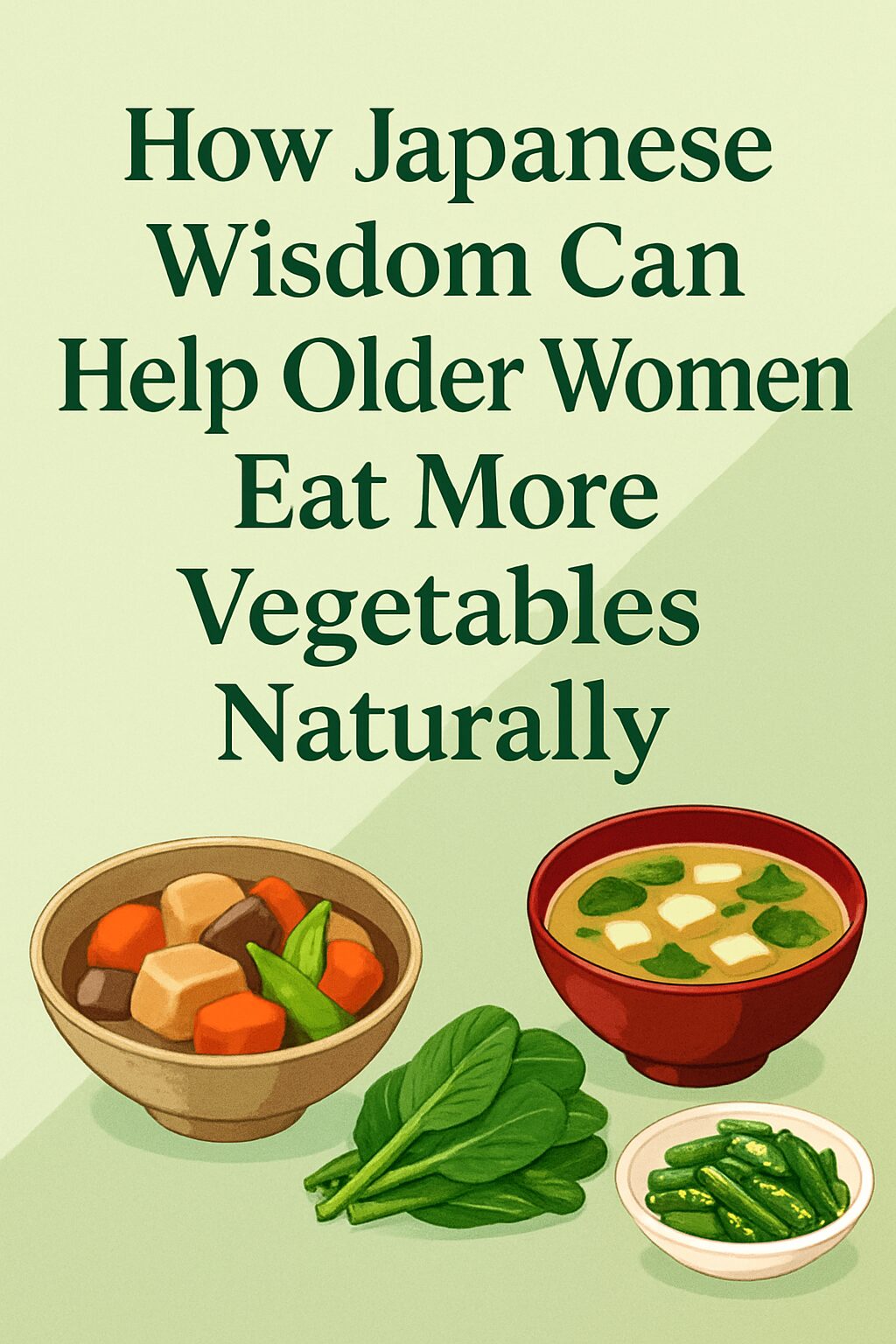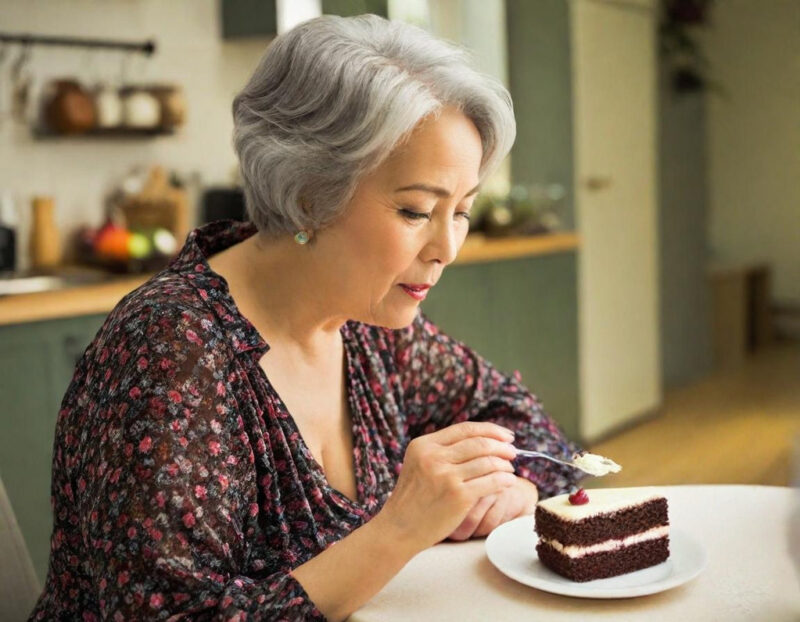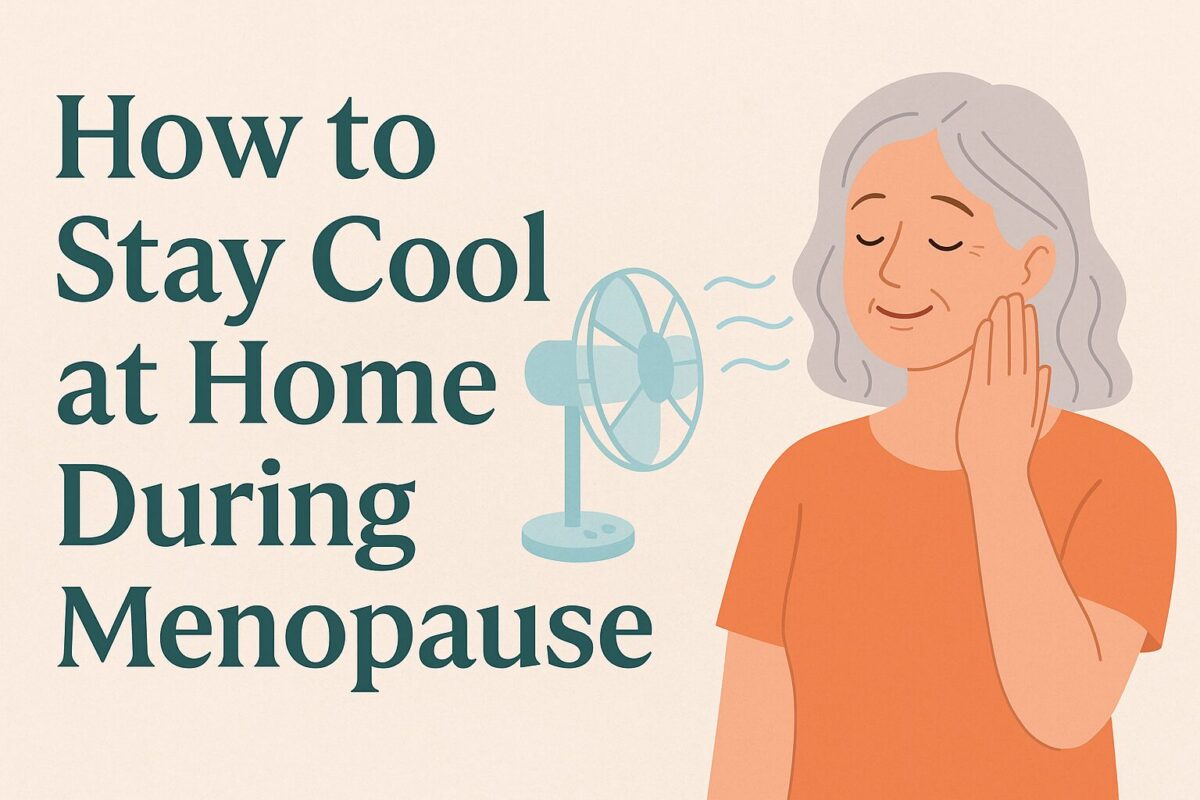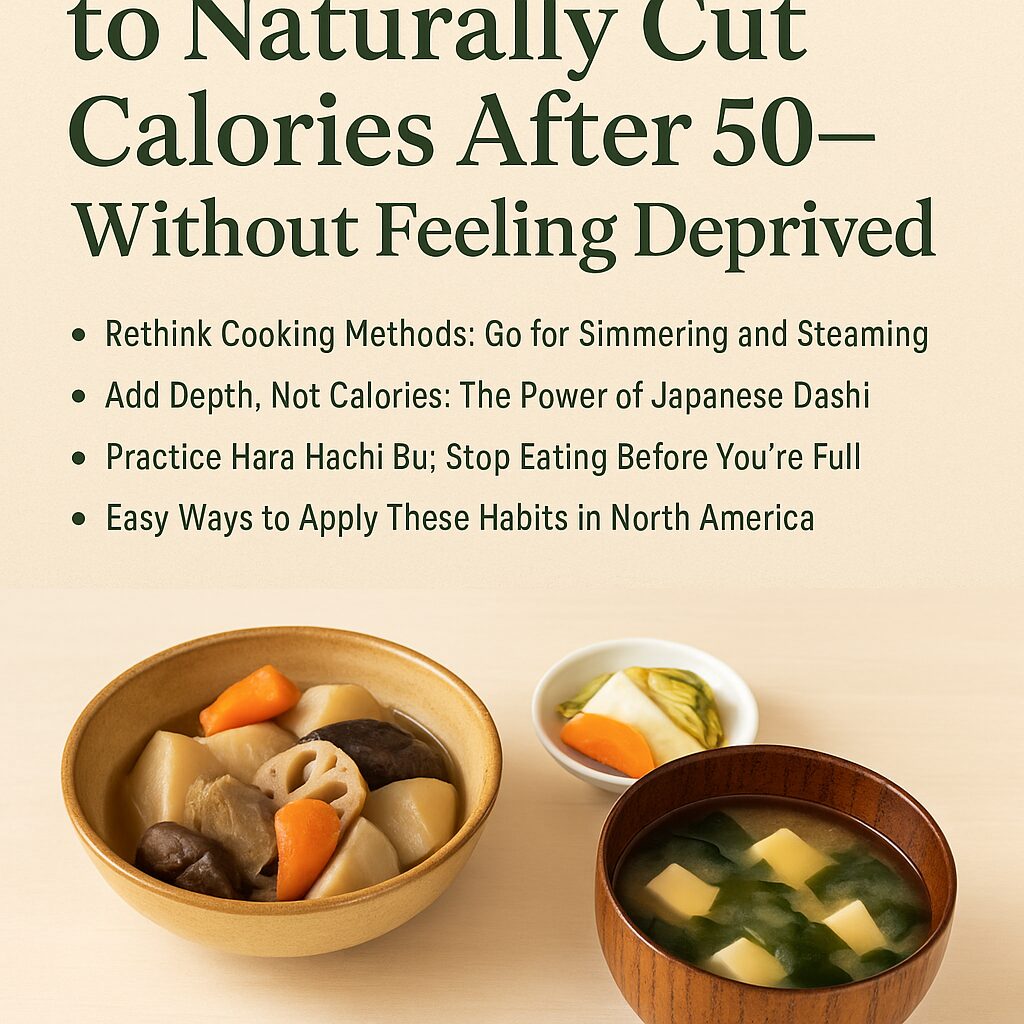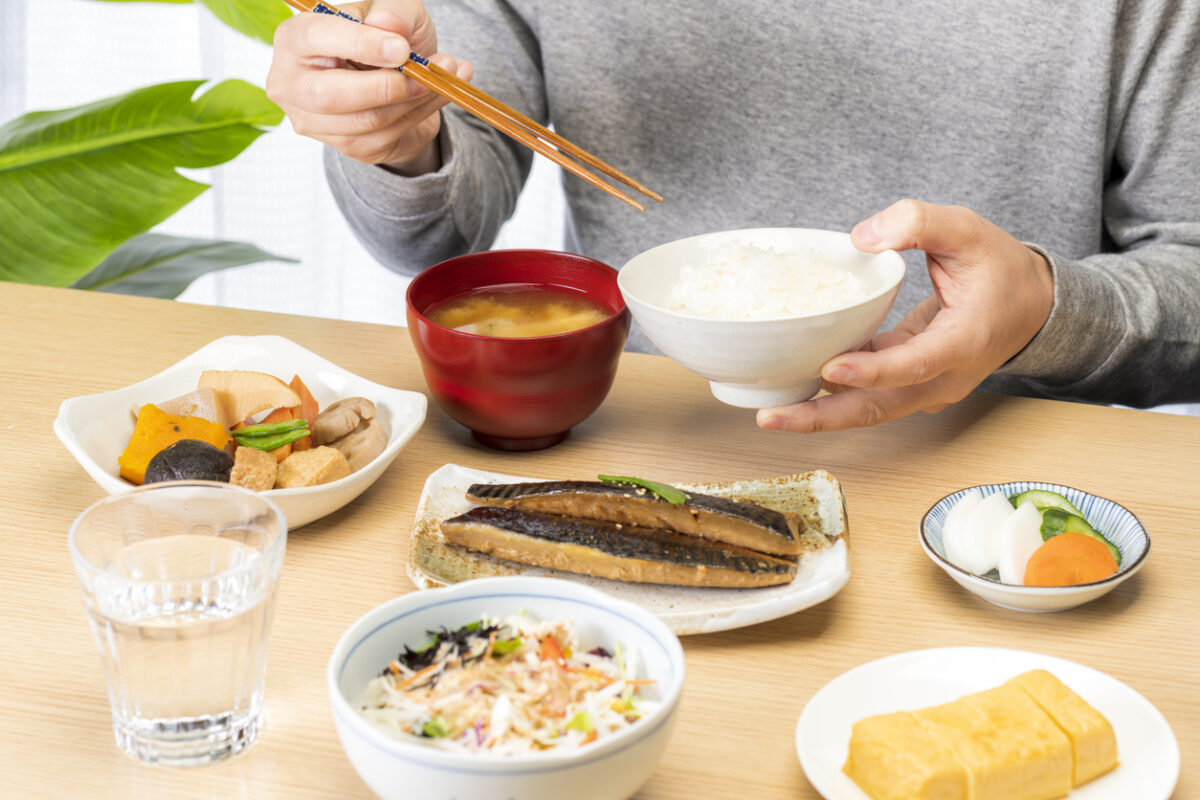Introduction
Many older women in North America find it hard to eat enough vegetables daily. Whether it’s a lack of time, energy, or appetite, this nutritional gap can increase the risk of chronic diseases, fatigue, and poor digestion. But what if there were simple, delicious ways to boost your vegetable intake without extra effort or complex cooking?
Japanese dietary wisdom offers time-tested solutions that naturally increase your vegetable consumption—often without using oil, salt, or sugar. Let’s explore how you can bring these easy and healthy habits into your life.
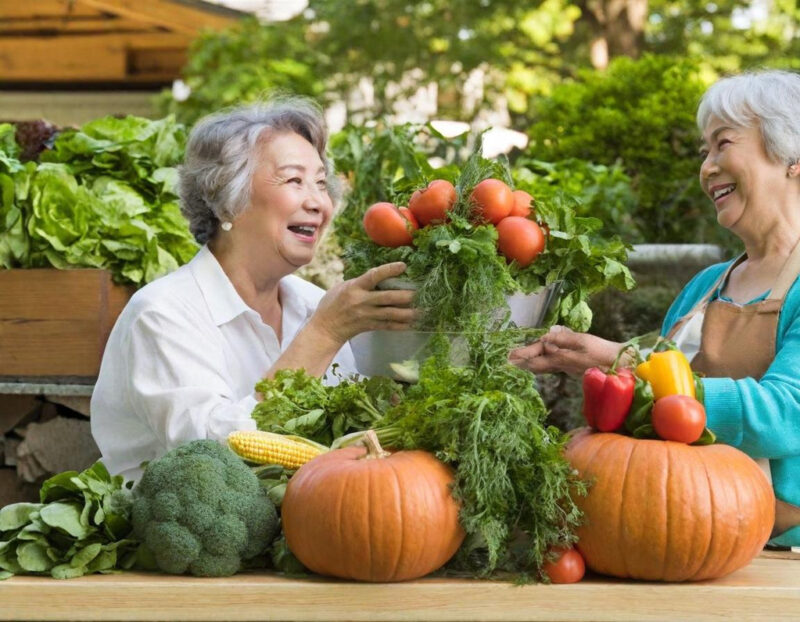
The Problem: Why Many Older Women Don’t Eat Enough Vegetables
Declining Appetite and Digestion
As we age, metabolism and digestive strength decline. This can lead to smaller appetites, especially for high-fiber foods like raw vegetables.
Lack of Time or Motivation
Many older adults live alone or feel too tired to prepare balanced meals. This often leads to skipping vegetables or relying on processed foods.
Overemphasis on Raw Salads
In many Western diets, vegetables are often served as raw salads. While this can be refreshing in warm weather, raw vegetables can be hard to digest for older adults and may not feel satisfying—especially during colder seasons. Additionally, salads often rely on heavy dressings to add flavor, which can add unnecessary calories and processed ingredients.
JAPANESE WISDOM: MAKE VEGETABLES EASY TO EAT AND ENJOY
Simmered Dishes (Nimono): Flavorful, Comforting, and Voluminous
One of the most effective ways to enjoy vegetables in Japanese cuisine is through nimono, or simmered dishes. Root vegetables such as carrots, daikon, burdock, and sweet potatoes are gently cooked in a seasoned broth made from dashi, soy sauce, and mirin.
This method does more than soften the vegetables—it allows you to consume a much greater volume of vegetables than in raw form. A large handful of raw carrots or burdock shrinks down to a small serving when simmered, making it easier to eat more without feeling overwhelmed.
Another major benefit: the umami-rich broth naturally enhances the flavor of vegetables, so there’s no need for calorie-heavy dressings or sauces. You get a satisfying, flavorful dish with no added oils or processed flavorings.
👉 Prepare a big batch, and you’ll have a ready-to-eat vegetable side for several days—ideal for women living alone or cooking in smaller portions.
Stir-Free Cooking: No Oil Needed
Unlike Western sautéing, Japanese cuisine often avoids oil. Instead, vegetables are steamed, boiled, or lightly simmered.
This means you can increase your vegetable intake without the added calories or inflammation that cooking oils may contribute to.
Miso Soup: A Daily Dose of Veggies
A small bowl of miso soup with seasonal vegetables—like spinach, cabbage, or mushrooms—provides warmth, nutrition, and gut-friendly fermented foods.
Adding tofu gives you plant-based protein and satiety without heaviness.
Easy Japanese-Inspired Habits You Can Start Today
Start Your Day with Soup
Instead of toast or cereal, try a light vegetable soup or miso soup. Warm foods are easier on the stomach and help improve circulation and digestion.
Keep Prepped Veggies in the Fridge
Blanch a batch of spinach or kale and keep it in the fridge. Use it in soups, toss with sesame and soy sauce for a quick side dish, or mix into scrambled eggs.
Use a Light Dashi Broth
Dashi, made from kombu and bonito flakes, adds rich flavor to vegetables without added salt or fat. You can now find dashi packets or concentrate in many Asian grocery stores or online.
Long-Term Benefits of Eating More Vegetables in This Way
Better Hormonal Balance
Vegetables rich in antioxidants and fiber support liver function and hormonal regulation. This is especially important during and after menopause.
Improved Gut Health
Warm, cooked vegetables are easier to digest and help maintain regular bowel movements. Adding fermented foods like miso enhances gut flora.
Sustainable Weight Management
Because these meals are low in fat and high in fiber, they keep you full longer while helping you maintain a healthy weight naturally.
Where to Learn More and Get Started
If you’re interested in applying Japanese-style eating habits to your lifestyle, consider exploring resources that offer beginner-friendly recipes and meal prep tips.
Here are some helpful articles and tools:
-
“How to Build a Healthy Meal Using Japanese Principles“
https://www.bonappetit.com/story/japanese-balanced-meal -
“What Is Nimono and How to Make It”
https://www.justonecookbook.com/nimono-simmered-dish/ -
“Japanese Superfoods That Boost Longevity“
https://www.bluezones.com/2023/08/japanese-superfoods-that-boost-longevity/
By adopting even a few of these practices, you can enjoy a more balanced, satisfying, and nutrient-rich diet—without stress or drastic changes.
Final Thoughts: A Gentle Shift Can Make a Big Difference
You don’t need to become a master of Japanese cooking. Just one bowl of miso soup a day, or a simple simmered carrot dish, can help your body and mind feel more nourished. For middle-aged and older women, these gentle shifts in diet can support hormonal balance, energy levels, and long-term wellness.
Try it this week—and feel the difference vegetables can make when they’re easier, tastier, and smarter to eat.
Lose your weight by boosting your decreased hormone with aging
Juveriente®’s Effisoy, launched in 2016, based on fermented soy bean germ extract has been loved as a natural menopause relief since its launching in 2016.
Its primary function is to boost the weakened synthesis of a hormone precursor, DHEA. It’s safe as it only heals the natural synthesis function. The hormone boost doesn’t provide the only relief from menopausal symptoms. But, it also supports various aging issues and increases metabolism, which leads to weight loss.
Here are some of the real product reviews in our Amazon shop.
“Restful sleep finally!!”, “I Am Now Free of Hot Flashes!!”, “Lifesaver”



